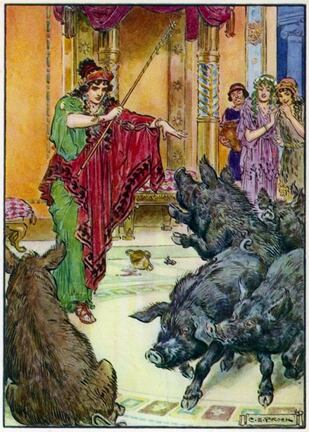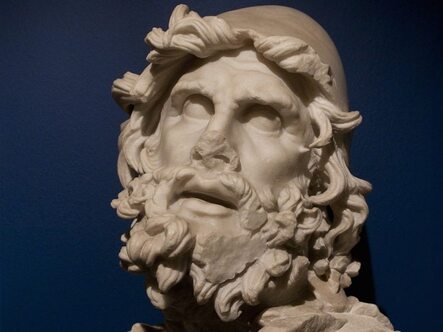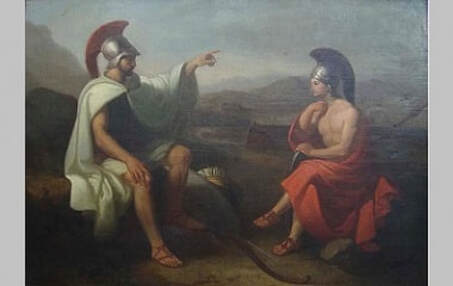|
By: Grant Ulrich
Instructor: Dr. Hope Jennings Course: Great Books 2040-01 11/30/21-12/8/21 An Interview with Madeline Miller’s “Circe” If you want to look further beyond this interview, then you can check out this blog on Circe’s misunderstood past. Blog (weebly.com) Circe agrees to sit down for a one-time exclusive Interview with a narrator who is irrelevant to the context of this piece. The information in this interview is based on Circe throughout many novels, not just the book of "Circe". Narrator: “You began your time born the daughter of god and nymph. Some could say that your knowledge and special set of skills classify you as a witch. In your words ‘Who is Circe?” Circe: “I’m the biological daughter of Helios and Perse. I had three children with my lover Odysseus. I am an independent thinker who is willing to break ties with people I am close to if their views do not align with mine.” Narrator: “You are known for your renowned knowledge of herbs and potions. Who do you credit for such magical prowess?” Circe: "Well, I come from a legendary lineage of sorcerers whose knowledge I must have inherently received.” Narrator: “If you do not mind me asking, what caused your separation from Odysseus?” Circe: “Well, I will spare you the nitty gritty details but as I mentioned before, mine and Odysseus’s beliefs about humanity and mortals did not align with mine.” Narrator: “Care to elaborate more on that?” Circe: “No, the details of that decision are personal.” Narrator: “It seems you are quick to jump to the defense of mortals. What sparks your passion for doing so?” Circe: “Well, there was a time when I had to choose between two things I loved. My choice was based on the fact that my morals aligned with the core values of mortals.” Narrator: “Do you approve of your son, Telemachus, killing your former husband, Odysseus, or what are your thoughts on that tragedy?” Circe: “I was torn between the fact the father of the child I was carrying was dead and the fact that the man that misrepresented everything I stood for no longer exist.” Narrator: “Circe, for a minute, let us pose a hypothetical. If you had another chance in life, would you choose to be mortal or immortal?” Circe: “That is a great question. A little fun fact about me is I did get this opportunity and I chose to be mortal. If I had a do-over for the start of my life, I would without a doubt still choose to be mortal. I feel immortality opens the door for someone to take for granted the little things in life and not fully appreciate what it has to offer.” Narrator: “If you if you would, tell us what feminism means to you?” Circe: “I think we can be free independent thinkers that can and should stick to what we believe in. In my case if that means breaking off relationships and even marriages then so be it.” Narrator: “Many wonder, why do you turn men specifically into pigs?” Circe: “Well even though I literally turn meant pigs its symbolic as much as anything else. One instance I remember most was after Odysseus men spent 10 years off at war and when they came back the way they looked at me with the lust in their eye was demoralizing. And I just thought to myself ‘these pigs just keep looking at me’ and I guess you could say I let them be who they wanted to be.” Narrator: “Some of your critics have said that it is a dominance thing for you; is that the case?” Circe: “Men always thought they were superior to us women and I take pride in using my magical powers to level the playing field a little if you will.” Narrator: “Why were you exiled to the island?” Circe: “Well one reason may have been because I murdered the prince of Colchis who was my then husband.” |

An artist depiction of Circe's magical transformations.
Odysseus: One of Circe's husbands and a central character in this interview.
A picture depicting Telemachus, someone who would eventually kill Odysseus.
|


